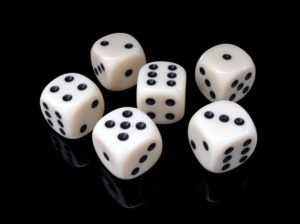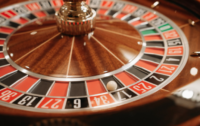
Some of the earliest gambling records are from ancient China, where people would gamble on everything from dice to lotteries. One of the oldest casinos in the world, Casino di Venezia, was founded in Venice in 1638. Gambling was also used in Ancient Greece and Rome as an entertainment activity for adults who were not working.
The first recorded lottery took place in 1776 when British Parliament passed legislation that legalized betting on horse races. Modern-day casinos started popping up all over Europe during the 18th century. After the French Revolution, gamblers spread to other parts of Europe and America. To know more about gambling, here is a brief history:
Gambling Has Been Around for a Long Time
Gambling has been around for centuries, with different games and activities used to gamble. Some of the earliest forms of gambling include dice games, which date back to 3000 BC in Egypt. Other famous gambling activities from ancient times include betting on animal fights and chariot races.
Dice Was the First Gambling Game
 The first evidence of gambling dates back to Ancient Egypt, where small sticks known as ‘dice’ have been found in the tombs of Pharaohs. The game was played with dice made from ivory or stone and took place on a board, often decorated with images related to spirituality. Most likely, they were used by the ancient Egyptians for religious purposes, but it is likely that they also played games for entertainment.
The first evidence of gambling dates back to Ancient Egypt, where small sticks known as ‘dice’ have been found in the tombs of Pharaohs. The game was played with dice made from ivory or stone and took place on a board, often decorated with images related to spirituality. Most likely, they were used by the ancient Egyptians for religious purposes, but it is likely that they also played games for entertainment.
The ancient Romans are most famous for having invented the card game ‘latrunculi,’ a war-like strategy board game where each player controlled fifteen pieces of wood or ivory with different moves and powers against another player.
Chess and Card Game Became Popular in the Middle Ages
Gambling has been around for centuries, with different games being popular at other times. The first recorded gambling game was back in 3000 BC when the Chinese played Wei-Qi. This game is still popular today and is known as Go. Other popular ancient games include Senet, which was played in Ancient Egypt, and Hazard, which was popular in Medieval Europe.
Chess and card games started to become popular during the Middle Ages. These games were seen to pass the time, and people would often gamble on the outcome. There are references to gambling on chess matches from as early as the 12th century.

Take Away
Gambling has been a part of human culture for centuries. From the days when sailors loaded dice in their hands to modern casinos filled with slot machines and video poker games, it is hard to imagine how much money is spent on this activity worldwide every year. While some may argue that gambling can be addictive or that people are just too easily tempted by the prospect of making some easy money, it is clear that this activity will continue to be famous for many years to come.



